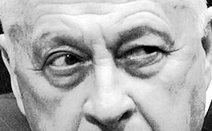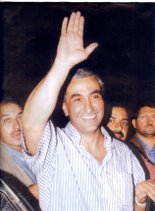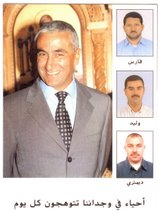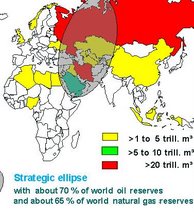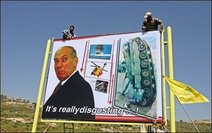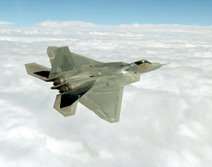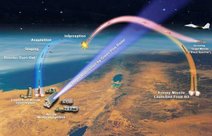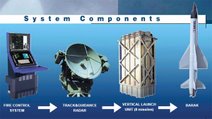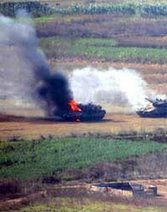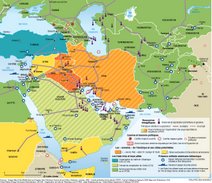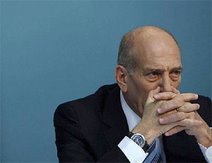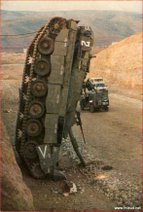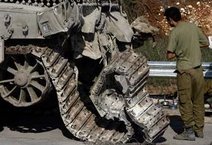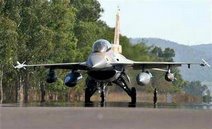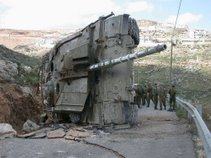
will it be heeded ? NO, the PNAC killers will twist and turn and try to reinvent new Neo-Hegemonic policies to fracture the whole world into more Tribes with Flags...
Support for President Barack Obama among Americans, including many who did not vote for him, is unprecedented. Globally, too, there has been deep interest in the election and widespread hope for change in U.S. policy. Practically everyone the world over now wishes Obama success.
The main reasons for this are the pressures of global economic and political tensions that have been piling up for decades. In his inauguration speech, Obama somberly cited these problems. The crisis, he said, is "a consequence of greed and irresponsibility on the part of some, but also our collective failure to make hard choices and prepare the nation for a new age."
Understandably, the president will focus first on the economic crisis. But solving America's economic problems without cardinal changes in the world will be impossible. The "Washington consensus" that assumed that the global economy could be designed from a single center has been discredited. It was based entirely on the profit motive, over-consumption and failed, outdated institutions.
A new model must recognize the need for multilateral cooperation. In his speech, Obama acknowledged that today's threats demand "even greater cooperation and understanding between nations." I am sure that however strong the criticism and even anger over some U.S. actions has been throughout the world - in Europe, China, India, Russia, Latin America - leaders and the general public understand the importance of America's role and are ready to cooperate with it.
But is America ready? In his speech, Obama said, "The world has changed, and we must change with it." The commitment to those words must be proven by specific deeds and decisions. This will require a realistic analysis of the global situation - the kind of analysis that has been lacking in the United States for nearly two decades. America has been widely seen as almost omnipotent. But arrogance and triumphalism blinded it as a policy-maker; slogans replaced serious thinking.
The 20th century was an American century - let's make the 21st another American century. Those words, spoken by President Bill Clinton, were echoed by those who have guided American policies in recent years. But the world will not agree to play the role of an "extra" in a movie scripted by the United States. Finally, recognition of that attitude seems to be emerging in the United States.
The outcome of the presidential election is an acknowledgement that America's strength does not come from empire-building or military adventures but from its ability to correct its mistakes. A course for foreign policy is not plotted overnight, particularly when what's needed is not a mere adjustment but a full revision. What the president and members of his team have said thus far is not enough to discern the direction they will take.
Obama is getting all kinds of advice. Zbigniew Brzezinski is proposing a focus on relations with China. His recent remarks in Beijing seem to suggest a kind of condominium, a U.S.-China G-2. Of course, China's global economic and political importance will keep growing, but I think those who would like to start a new geopolitical game will be in for a disappointment. China is unlikely to accept; more generally, such games belong to the past. Similarly, Henry Kissinger's proposals for "a new world order" seem to assume a new geopolitical division of the world. What we really need are new, more modern approaches.
A number of European public figures have urged Obama to reconsider past policies that have long been taken for granted. The United States, which in 1990 signed the Paris Charter for a New Europe, could be a natural partner in creating a new European security structure - a project now under discussion.
I also hope the president sees the great potential inherent in relations with Russia, which have been mishandled in recent years. A change for the better could be achieved relatively soon, helping to move toward healthier relations with Russia's neighbors and within Europe as a whole.
In shaping Mideast policy, a real battle is inevitable. If anything should have become crystal clear in recent years, it's that "business as usual" only makes the Middle East more dangerous. Current U.S. policies have not been good for the region as a whole or, in particular, for Israel, a nation with which the United States has special relations.
Two long-term problems have taken on a special urgency and will require Obama's close attention: nuclear proliferation and the environmental crisis. It will not be easy to disentangle the intricate web of contradictions surrounding these issues.
Reducing nonproliferation to the demand that Iran and North Korea cease their nuclear programs will lead to a dead end. The nuclear powers will not be able to hold on to their monopoly indefinitely, and the nonproliferation treaty does not allow it.
The solution is to move toward a world without nuclear weapons. But this goal cannot be achieved if one country retains an overwhelming superiority in conventional weapons. Without specific steps to reduce these weapons - more generally, without demilitarizing international politics - we will have only empty talk. What's needed is a real breakthrough, like the one achieved in the late 1980s.
Judging by Obama's inaugural speech, he understands that even while he faces the immediate challenges of the economic crisis, he should not push to the sidelines problems like poverty and environmental issues, particularly climate change. Fostering economic development and preserving the planet for future generations can be contradictory; the only way to resolve this clash of priorities is to develop policies multilaterally. This is true of practically every problem, in all areas.
I suspect that many people are pondering Obama's call for a new era of responsibility. Perhaps neither he nor we can yet see what shape it will take.
One thing is already clear, though: We are indeed on the cusp of a new age, on the road to a new world, one we must travel together.



